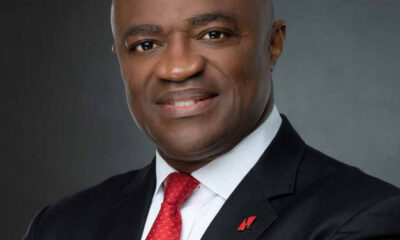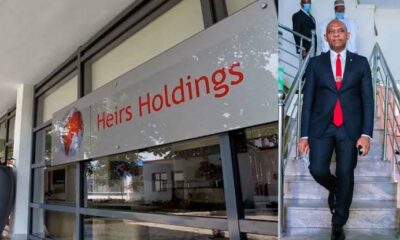- Elumelu Urges Leaders to Prioritise Africa’s Development
The founder of the Tony Elumelu Foundation and Chairman, Heirs Holdings, Mr. Tony Elumelu, has challenged African leaders to prioritise the future of the African continent.
Elumelu, who is also the Chairman of the United Bank for Africa Plc, said this at the inaugural Africa Now Conference held in Kampala.
Giving the keynote address, entitled “The Leadership Needed to Catalyse Africa’s Transformation,” to an audience of public and private sector leaders, Elumelu offered a robust and direct message to African leaders from the public and private sectors.
“The leaders we need in Africa today, are leaders who genuinely care about humanity. We need leaders who are driven by an ambition to leave society better than they met it. We need leaders who understand and care about creating a positive legacy. We need leaders who are genuinely committed and care about the future of Africa,” Elumelu said.
Hosted by the President of Uganda, Yoweri Kaguta Museveni, the conference, an initiative of the Africa Strategic Leadership Centre, gathered Heads of State, public and private sector leaders to discuss and develop growth opportunities for the continent.
In his speech, President Museveni outlined key enablers required to empower the African people and transform the continent.
“With independence, although a lot of time was lost with military governments engaged in primitive fascism, nevertheless, many African governments have correctly identified two crucial stimuli that can catalyse social transformation. These are education and health for all (human resource development) and private sector-led growth”.
Commending President Museveni on the achievements of his country, Elumelu also emphasised the need for public-private sector collaboration to drive sustainable development, encapsulated in his economic philosophy, Africapitalism.
“Leadership should not be about directing blame; leadership is not about absolving responsibility. Leadership is the catalyst for positive change. We need to take collective responsibility for our own future – as I have often said, no one is going to do it but ourselves – whether we are in the public or private sectors. This is the philosophy of Africapitalism, which is a call on the private sector to play its role, the leading role in securing our continent’s destiny – and achieving it by creating both social and economic wealth.”
“We have a role to play and we need to play this role by investing and managing, so we can create employment, create prosperity in a manner that will help to address many of the problems we have in the society today,” he added.

 Forex3 weeks ago
Forex3 weeks ago


 Naira2 weeks ago
Naira2 weeks ago
 Billionaire Watch2 weeks ago
Billionaire Watch2 weeks ago




 Naira2 weeks ago
Naira2 weeks ago




 Naira2 weeks ago
Naira2 weeks ago




 Naira1 week ago
Naira1 week ago




 Naira3 weeks ago
Naira3 weeks ago




 Naira4 weeks ago
Naira4 weeks ago


















